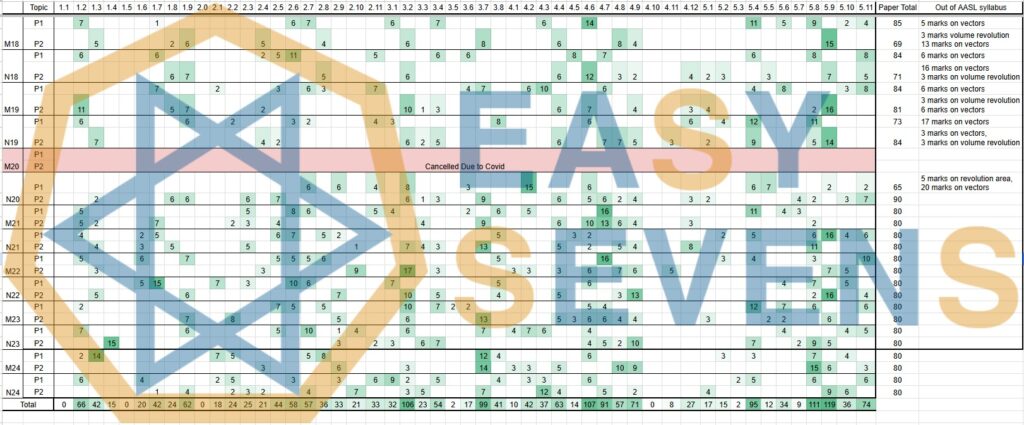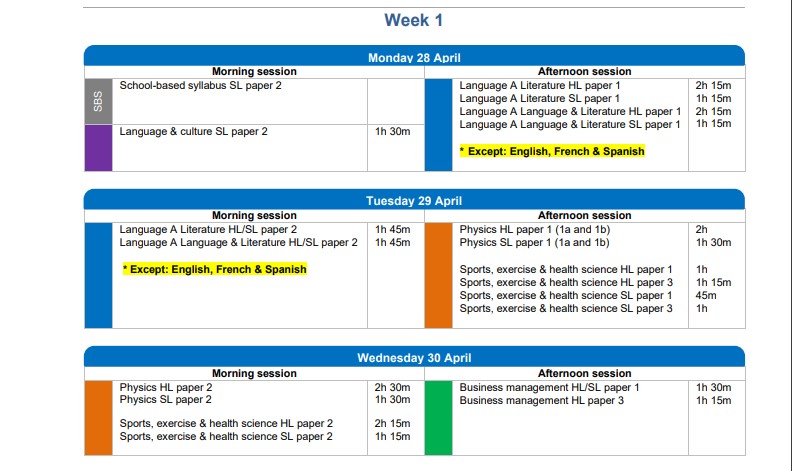Are you a student embarking on your second year of the International Baccalaureate (IB) program? Congratulations on completing the first year! As you move forward, it’s natural to feel a mixture of excitement and apprehension about the challenges that lie ahead. The second year of IB can be demanding, but with the right approach and mindset, you can navigate it more smoothly. In this article, we will explore seven essential tips to make your second year of IB easier. These tips, often overlooked or not widely discussed, will provide you with valuable insights and strategies to excel in your studies.
1. Prioritize Your Time and Set Realistic Goals
Time management is crucial during your second year of IB. As the workload intensifies and the pressure mounts, it’s essential to prioritize your tasks and set realistic goals. Here’s how you can do it effectively:
- Create a study schedule: Design a detailed study plan that allocates sufficient time for each subject and includes regular breaks to avoid burnout. Stick to the schedule as much as possible, but be flexible enough to accommodate unexpected events.
- Identify your most challenging subjects: Determine the subjects that require more time and effort from you. Allocate additional study hours to these subjects while ensuring you maintain a balance across all disciplines.
- Break down your goals: Instead of overwhelming yourself with long-term goals, break them down into smaller, achievable milestones. Celebrate your progress along the way, as it will boost your motivation and sense of accomplishment.
Remember, effective time management is not about studying non-stop; it’s about finding a balance that allows you to optimize your productivity and maintain your overall well-being.
2. Strengthen Your Understanding through Active Learning
Merely memorizing facts and concepts is not sufficient to excel in the IB program. To truly grasp the subjects and perform well in exams, active learning techniques are essential. Here’s how you can incorporate active learning into your study routine:
- Engage in class discussions: Participate actively in classroom discussions, ask questions, and seek clarification when needed. Engaging in debates and sharing different perspectives will deepen your understanding of the subject matter.
- Form study groups: Collaborate with classmates and form study groups. Discussing concepts, solving problems together, and teaching each other can enhance your understanding and promote critical thinking.
- Utilize visual aids: Create mind maps, diagrams, or flowcharts to visualize complex information. Visual aids help you connect different ideas and reinforce your understanding of the subject matter.
- Teach someone else: Explaining concepts to others is a powerful way to solidify your knowledge. Teach a sibling, a friend, or even an imaginary audience to reinforce your understanding of the material.
Active learning not only enhances your understanding but also helps you retain information for longer periods.
3. Seek Clarification and Guidance
Don’t hesitate to seek clarification or guidance when you encounter difficulties in your studies. Teachers, classmates, and online resources can provide valuable insights and support. Here are some strategies to help you seek clarification effectively:
- Consult your teachers or IB tutors: Reach out to your teachers or IB tutors during office hours or after class to address any questions or concerns you have. They are there to support you and provide further explanation when needed.
- Join online forums: Participate in online forums or discussion boards related to IB subjects. These platforms offer opportunities to connect with students worldwide, share knowledge, and seek guidance.
- Utilize online resources: Take advantage of online resources such as educational websites, video tutorials, and forums dedicated to IB students. These resources can provide alternative explanations and examples that complement your classroom learning.
Remember, seeking clarification is a sign of strength, not weakness. Embrace the opportunity to deepen your understanding and enhance your performance.
4. Review and Consolidate Your First-Year Knowledge
The second year of IB builds upon the foundation established in the first year. It’s crucial to review and consolidate your knowledge from the previous year to ensure a strong understanding of fundamental concepts. Here’s how you can accomplish this:
- Review your notes: Go through your notes from the first year and refresh your memory on key concepts and ideas. Identify areas where you feel less confident and allocate additional study time to reinforce your understanding.
- Practice past exam papers: Familiarize yourself with the format and style of IB exams by practicing past papers. This exercise will not only help you identify areas that require more attention but also improve your time management and exam technique.
- Create summary sheets: Summarize the main points, formulas, and concepts for each subject on concise summary sheets. Reviewing these sheets regularly will help you retain information and serve as a quick reference during revision.
By reviewing and consolidating your first-year knowledge, you’ll establish a strong foundation for the more complex topics you’ll encounter in your second year.
5. Develop Effective Study Techniques
Having effective study techniques is essential to optimize your learning and make the most of your study time. Consider incorporating the following strategies into your routine:
- Chunking: Break down large chunks of information into smaller, more manageable sections. This approach makes it easier to understand and remember complex concepts.
- Spaced repetition: Instead of cramming all your studying into a single session, spread it out over multiple study sessions. Spaced repetition enhances long-term retention and reduces the risk of forgetting information.
- Interleaving: Interleave your study sessions by alternating between different subjects or topics. This technique helps you make connections between different concepts and enhances your ability to apply knowledge in a broader context.
- Utilize mnemonic devices: Mnemonics, such as acronyms, rhymes, or visual imagery, can aid in remembering complex information. Create personalized mnemonic devices that resonate with you and make the learning process more enjoyable.
Experiment with different study techniques to find what works best for you. Everyone has unique learning preferences, so adapt these strategies to suit your style and needs.
6. Practice Self-Care and Maintain a Balanced Lifestyle
Maintaining a balanced lifestyle is crucial to avoid burnout and perform at your best throughout the second year of IB. Here are some self-care practices to consider:
- Get sufficient sleep: Aim for seven to nine hours of quality sleep each night. A well-rested mind is more focused, alert, and better equipped to handle the challenges of the IB program.
- Eat a nutritious diet: Fuel your body with nutritious meals and snacks that support brain function and overall well-being. Avoid excessive caffeine or sugar, as they can disrupt your energy levels and concentration.
- Engage in physical activity: Incorporate regular exercise into your routine to reduce stress, improve cognitive function, and boost your mood. Whether it’s a brisk walk, yoga, or team sports, find an activity that you enjoy.
- Take breaks and relax: Schedule regular breaks during your study sessions to rest and recharge. Engage in activities that help you relax and unwind, such as listening to music, practicing mindfulness, or pursuing a hobby.
Remember, taking care of yourself is not a luxury; it’s an investment in your long-term success.
7. Stay Motivated and Maintain a Positive Mindset
Motivation and a positive mindset play a significant role in your success throughout the second year of IB. Here are some strategies to help you stay motivated:
- Set personal goals: In addition to academic goals, set personal goals that align with your passions and interests. Whether it’s winning a debate competition or volunteering in your community, these goals will provide additional motivation and fulfillment.
- Celebrate achievements: Acknowledge and celebrate your achievements, no matter how small. Rewarding yourself for your hard work will boost your confidence and maintain your enthusiasm for learning.
- Visualize success: Visualize yourself succeeding in the IB program. Imagine yourself confidently answering exam questions, receiving positive feedback from teachers, and achieving your desired outcomes. This mental imagery can help you stay focused and motivated.
- Surround yourself with positive influences: Surround yourself with supportive classmates, friends, and family members who motivate and uplift you. Engage in conversations that inspire you and avoid excessive negativity or self-doubt.
By maintaining a positive mindset and nurturing your motivation, you’ll be better equipped to overcome challenges and excel in your second year of IB.
Conclusion
The second year of the IB program can be challenging, but by implementing these seven essential tips, you can navigate it with greater ease. Remember to prioritize your time, engage in active learning, seek clarification when needed, review and consolidate your first-year knowledge, develop effective study techniques, practice self-care, and maintain a positive mindset. With dedication, perseverance, and a strategic approach, you can excel in your IB studies and set yourself up for success in the future.
Frequently Asked Questions
The second year of IB is generally considered more challenging due to the increased workload and the focus on preparing for final exams. However, by implementing effective study strategies and maintaining a balanced approach, you can overcome these challenges and succeed.
To manage your time effectively, create a study schedule, prioritize tasks, and set realistic goals. Break down your goals into smaller milestones and allocate additional study time to challenging subjects. Remember to take regular breaks to avoid burnout.
If you’re struggling to understand a concept or subject, don’t hesitate to seek clarification. Consult your teachers, join online forums, or utilize online resources to gain further insights and guidance. Active engagement and seeking clarification are crucial for deepening your understanding.
To stay motivated, set personal goals, celebrate achievements, visualize success, and surround yourself with positive influences. Remember to maintain a positive mindset and focus on your passions and interests.




